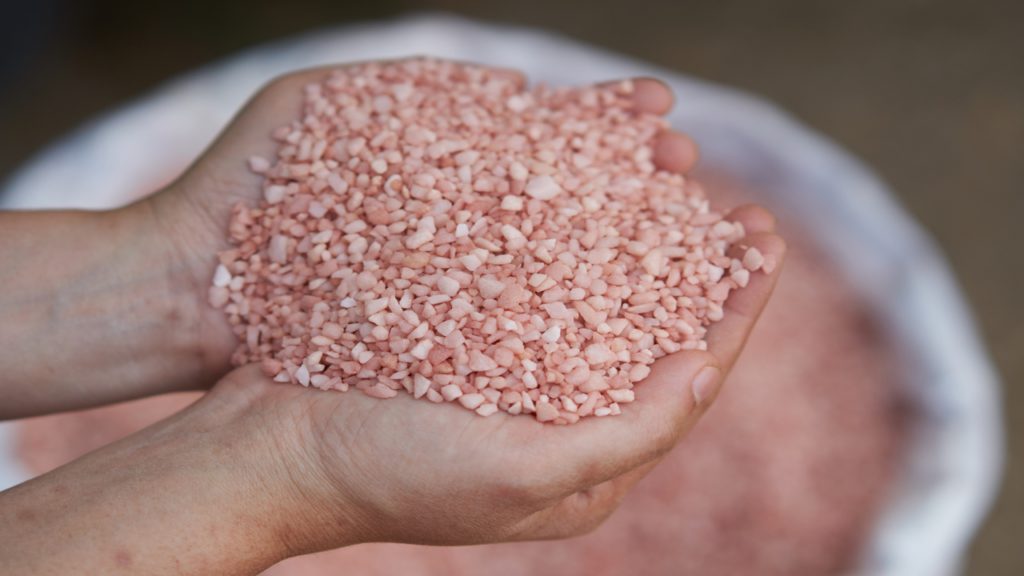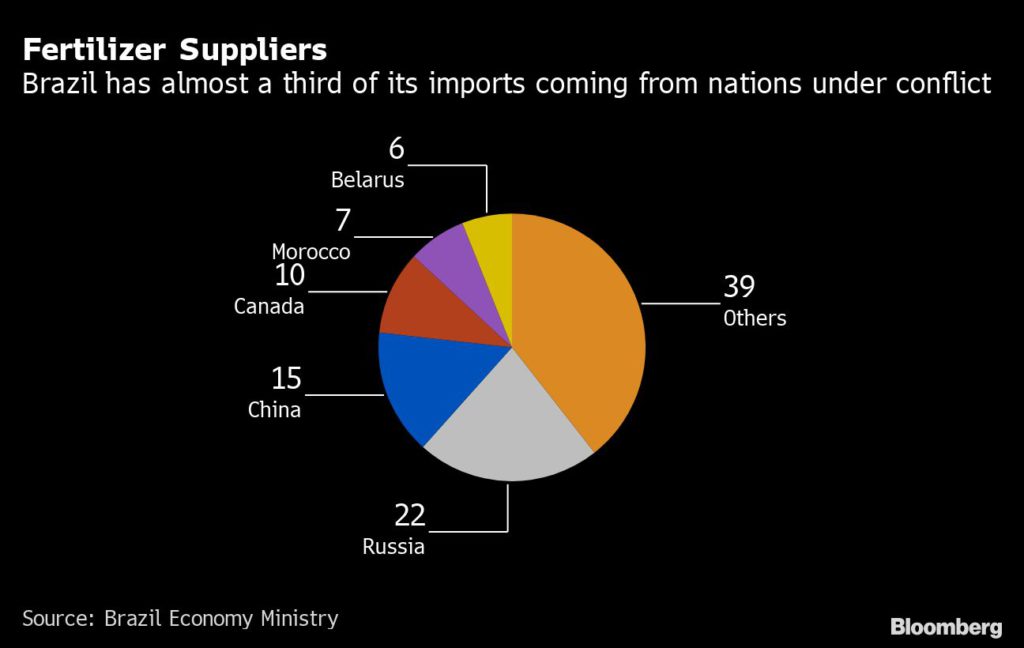
Agricultural powerhouse Brazil is desperate for fertilizers. Belarus, a sanctioned regime friendly to Russia’s Vladimir Putin, is looking for ways to ship more of the nutrients.
Belarusian President Alexander Lukashenko gave his stamp of approval to small companies trying to export potash to cash in on skyrocketing fertilizer prices. But the U.S. and the EU banned the country’s shipments of the nutrient, leaving Brazilian farmers scrambling. To secure enough potash for the soybean planting in September, Brazil may need to resort to barter or using yuan and Chinese intermediary.
“Companies in Brazil are up for business in almost all ways: payments, barter, exchanges,” said Jeferson Souza, fertilizer analyst for Agrinvest Commodities in Brazil. “We are getting dangerously close to the planting in Brazil and we are short several tons.”

Belarus controlled about a fifth of the global potash market and was a major seller to Brazil until Lithuania in January cut off a key transit route amid U.S. sanctions imposed in 2021. Then Russia, the second-biggest potash producer, invaded Ukraine, further limiting supply of fertilizers from the region. Brazil has been seeking exemptions that would allow some potash purchases to avoid hunger and food inflation.
Belarus can still sell potash to the Russian market, a move that could push Russian companies to export more. But as of today, Russians are not able to export sizable quantities, according to CRU Group analyst Humphrey Knight. Even amid all that distress, some vessels are slowly being booked to bring fertilizers out of Russia to Brazil, but the volumes are small and buyers are not disclosing details. Russia limited sales of its nutrients abroad and many ports and shipping lines balk at Russian freight.
The South American nation ships in more than 85% of its fertilizer demand, with the dependency on imports exceeding 90% in potash and nitrogen. Russia and Belarus account for 28% of the total.
(By Tarso Veloso, Aliaksandr Kudrytski and Tatiana Freitas, with assistance from Elizabeth Elkin)
Comments